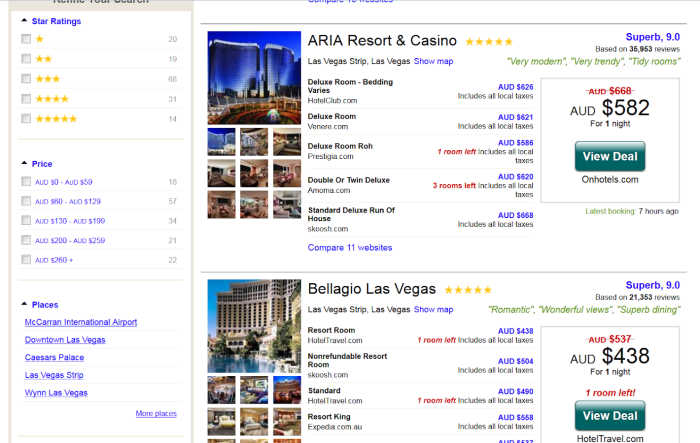How to Use Seasonal Trends to Find Cheap Hotel Deals
Understanding seasonal trends is crucial for travelers seeking affordable hotel accommodations. Hotel prices fluctuate throughout the year based on demand, local events, and regional climate patterns. By aligning your booking strategy with these trends, you can secure significant savings without compromising on quality.
Understanding Seasonal Pricing in the Hotel Industry
Hotels adjust their rates based on anticipated demand, a practice known as seasonal pricing. During peak seasons—such as summer vacations, major holidays, or local festivals—demand surges, leading to higher prices. Conversely, during off-peak periods, hotels often lower rates to attract guests and maintain occupancy levels. For instance, a ski resort may charge premium rates during winter but offer substantial discounts during the summer months when skiing isn’t possible.
Identifying Off-Peak Seasons for Popular Destinations
Recognizing off-peak periods in various destinations can lead to substantial savings:
-
Europe: While summer attracts the most tourists, traveling during the shoulder seasons—spring (April to June) and fall (September to October)—can result in lower hotel rates and fewer crowds.
-
Caribbean: The region’s high season spans from December to April. Visiting during the summer months can offer reduced prices, though it’s essential to consider the hurricane season, which peaks from August to October.
-
Southeast Asia: The dry season (November to February) is the most popular. Traveling during the monsoon season (June to October) can lead to discounted hotel rates, but be prepared for increased rainfall.
Leveraging Booking Timing for Optimal Rates
The timing of your booking plays a pivotal role in securing favorable rates:
-
Advance Bookings: Contrary to the belief that earlier is always better, studies have shown that booking approximately 15 days before your intended stay can result in nearly 13% savings. This approach is particularly effective for luxury hotels, which may offer more significant discounts closer to the check-in date.
-
Day of the Week: Research indicates that the day you book can influence prices. For domestic U.S. hotels, Fridays tend to offer slightly better rates, while Thursdays are optimal for international bookings, with potential savings of up to 6%.
Utilizing Membership Programs and Loyalty Schemes
Many hotels and booking platforms offer membership programs that provide immediate benefits:
-
Asmallworld: This program offers significant savings and additional perks, such as networking events, for premiums starting from £69.
-
CitizenM’s mycitizenM+: For £90 annually, members receive discounts of up to 30% and free co-working spaces, making it ideal for business travelers.
-
Mr & Mrs Smith: Offering a range of benefits, including price matches and loyalty rewards, this program has tiers starting at £100 per year.
These memberships can lead to substantial savings, especially for frequent travelers.
Exploring Alternative Accommodation Options
Beyond traditional hotels, considering alternative accommodations can be both economical and enriching:
-
Vacation Rentals: Platforms like Airbnb and Vrbo offer a range of properties, from single rooms to entire homes, often at competitive prices.
-
Hostels: Modern hostels provide private rooms and amenities, catering not just to backpackers but also to travelers seeking budget-friendly options.
-
Boutique Hotels: Smaller, independently owned hotels can offer unique experiences and personalized service, often at lower rates than large chains.
Monitoring Price Trends and Setting Alerts
Staying informed about price fluctuations can give you a competitive edge:
-
Price Alerts: Many travel platforms allow users to set alerts for specific destinations, notifying them of price drops or promotions.
-
Historical Data: Reviewing past pricing trends can help predict future fluctuations, enabling more strategic booking decisions.
Negotiating Directly with Hotels
Sometimes, reaching out to hotels directly can result in better deals:
-
Direct Bookings: Hotels may offer incentives, such as complimentary breakfast or room upgrades, to guests who book directly through their website or reservation line.
-
Last-Minute Negotiations: If you’re comfortable with spontaneity, contacting hotels on the day of your intended stay can lead to significant discounts, as establishments aim to fill vacant rooms.
Considering Package Deals and Bundled Offers
Combining various travel components can lead to overall savings:
-
Flight and Hotel Bundles: Many travel agencies and online platforms offer discounted rates when flights and accommodations are booked together.
-
Inclusive Packages: Some deals include meals, activities, or transportation, providing added value and simplifying the planning process.
Staying Flexible with Travel Dates and Destinations
Flexibility can be a powerful tool in securing affordable rates:
-
Date Flexibility: Adjusting your travel dates by a few days can lead to substantial savings, especially if it means traveling during off-peak times.
-
Destination Flexibility: Being open to various destinations allows you to choose locations where favorable rates are currently available.
Utilizing Technology and Apps for Real-Time Deals
In today’s digital age, numerous tools can assist in finding the best deals:
-
Deal Aggregator Apps: Applications like HotelTonight specialize in last-minute bookings, offering discounted rates for spontaneous travelers.
-
Browser Extensions: Tools like Honey automatically apply available coupon codes at checkout, potentially reducing costs further.
Understanding Cancellation Policies and Refund Options
Being aware of a hotel’s cancellation policy can provide financial flexibility:
- Flexible Rates: Opting for rates that allow free cancellation can be slightly more expensive but offer peace of mind
Understanding Cancellation Policies and Refund Options
Being aware of a hotel’s cancellation policy can provide financial flexibility and reduce risks in case of unexpected changes to travel plans.
- Flexible Rates: Opting for rates that allow free cancellation can be slightly more expensive but offer peace of mind if plans change.
- Refundable vs. Non-Refundable Rates: While non-refundable rates tend to be cheaper, they carry the risk of losing your money if you need to cancel.
- Travel Insurance: Some travel insurance policies cover cancellations due to unforeseen circumstances, making them a worthwhile investment for peace of mind.
Utilizing Credit Card Perks and Travel Rewards
Many credit cards offer travel-related perks that can help save money on hotel bookings.
- Cashback and Points: Some credit cards provide cashback or reward points for hotel bookings, which can be redeemed for future travel expenses.
- Complimentary Hotel Stays: Premium travel cards often offer free annual hotel nights as part of their benefits.
- Travel Protections: Many travel credit cards include trip cancellation coverage, delayed baggage reimbursement, and rental car insurance.
Taking Advantage of Flash Sales and Limited-Time Deals
Hotels and booking platforms frequently run promotional campaigns that can lead to significant savings.
- Black Friday and Cyber Monday Sales: Many hotel chains and travel websites offer substantial discounts during major shopping events.
- Off-Season Promotions: Hotels may introduce exclusive offers during slow periods to encourage bookings.
- Email Subscriptions and Newsletters: Signing up for newsletters from hotel chains and travel sites can provide early access to deals and exclusive discounts.
Considering Alternative Lodging for Budget-Friendly Stays
Exploring non-traditional accommodation options can be a cost-effective way to travel while enjoying unique experiences.
- House Swaps and Home Rentals: Platforms like HomeExchange allow travelers to swap homes, reducing lodging expenses significantly.
- Couchsurfing: For budget-conscious travelers, Couchsurfing provides an opportunity to stay with locals for free, often leading to authentic cultural experiences.
- Extended Stay Discounts: Some hotels and vacation rentals offer reduced rates for long-term stays, making them ideal for slow travelers or remote workers.
Booking Through Lesser-Known Travel Websites for Exclusive Discounts
While major booking platforms are popular, lesser-known travel websites can sometimes offer better deals.
- Agoda and HotelTonight: These platforms often have exclusive rates that are not available on mainstream travel websites.
- Regional Booking Platforms: Some countries have local travel sites that cater to domestic travelers and may offer lower prices than international booking platforms.
- Direct Hotel Websites: Booking directly through a hotel’s official website can sometimes yield perks like free breakfast, room upgrades, or loyalty points.
FAQs
- What is the best time to book a hotel for the lowest price? Booking 15 days before check-in often results in better rates, especially for luxury hotels.
- Do hotels get cheaper closer to the date? Yes, last-minute deals can sometimes offer lower prices as hotels try to fill vacant rooms.
- Which websites offer the best hotel discounts? Websites like Agoda, HotelTonight, and Priceline often provide competitive rates.
- Are hotel loyalty programs worth it? Yes, they offer perks such as discounts, free nights, and exclusive deals for frequent travelers.
- How do I find off-peak travel deals? Researching seasonal trends and booking during shoulder or low seasons can help secure lower rates.
Conclusion and Call to Action
Finding cheap hotel deals requires a strategic approach that combines timing, research, and the use of various booking tools. By leveraging seasonal trends, tracking price fluctuations, and exploring alternative lodging options, travelers can enjoy significant savings without sacrificing quality. Start planning your next trip today by applying these strategies and securing the best hotel rates available!


